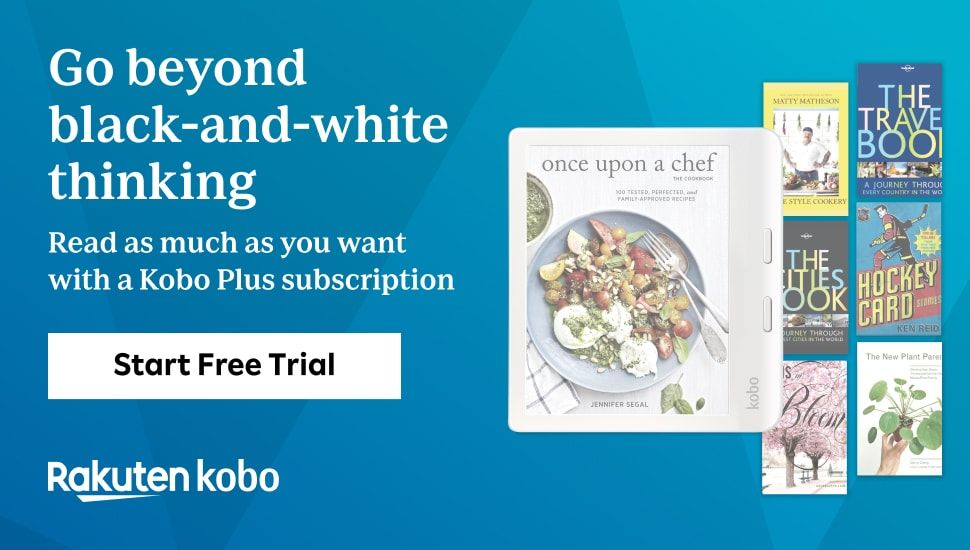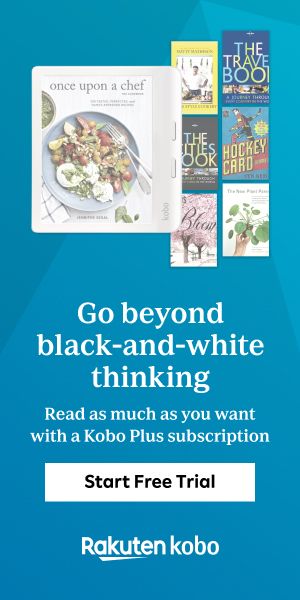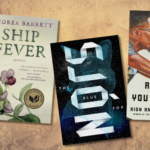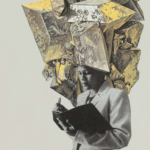
Why Do We Even Read?: Book Censorship News, February 9, 2024
This is the sixth and final piece in a series of posts that offer insights and calls to action based on the results of three recent surveys conducted by Book Riot and the EveryLibrary Institute. The surveys explored parental perceptions of public libraries, parental perceptions of librarians, and parental perceptions of school libraries. The first post in the series emphasized how data overwhelmingly supports libraries and library workers. The second looked at how what’s happening in school libraries is foreshadowing the future of public libraries. The third, on why library workers need to be their own advocates of the library, and the fourth, on the erosion of trust in professional library workers despite parental trust in those same professionals. The fifth piece explores how deeply ingrained intolerance is in America and how that manifests in book banning.
Somewhere between 2016 and 2018, a major shift happened in our internet experiences. Algorithms began to take over what were once chronological timelines across social media.* With that shift, users no longer only saw posts from friends, family, or groups to which they belonged. Instead, algorithms predicted user behavior based on prior engagement with content. If you clicked on and liked or shared a particular news story, the algorithm would learn that and serve up more stories like it to your feed. Access to Facebook or Twitter or Instagram was free to you as a user, but only in so much that you did not pay for it with money. You paid for it with your data, used by those social media companies to attract advertisers.
Several outcomes from this shift have happened, and two of them are especially relevant to our moment in history around book banning. The first is that algorithms have impacted local news. The downfall of local news since 2000 has been well-documented — somewhere around one in four local newspapers have shuttered between that year and 2020. This closure has meant local stories, including the reports on happenings at the local school and library board meetings, have gone untold or, if they are told, they are locked behind a paywall. The papers that remain either through good luck and those which have been absorbed into larger media conglomerates have had to play the game online to get their news in front of readers. Stories and headlines alone no longer do their job to catch attention. They need to compel readers to engage with the content via likes, shares, and comments in order for those stories to show up in more feeds. You might “Like” your local paper on Facebook or follow them on Twitter, but unless you’re doing something with their stories, you are probably not seeing them show up in your feed. Thus, a shift to cover the most outlandish has been crucial, not because the stories are important or impact the lives of a community. They’re crucial because they solicit the engagement those outlets need in order to even get their work out there.
The second big outcome of the shift to algorithms is that echo chambers online have gotten even bigger. Because engagement is what fuels the algorithm, anything you might be commenting on, sharing, or clicking, is going to package that data and help serve up more content like what you’ve seen. This is why it can be shocking for folks who are otherwise smart and well-informed to learn about something that has really been all over the news. A lot of times, when people online say, “Why has no one been talking about this?” the reality is that they have. That work just has not crossed into every feed.
Echo chambers borne from the algorithm create tunnel vision for people. If you’ve clicked and are compelled to share how angry you are about a new anti-trans law being proposed in your state legislature, the algorithm is going to serve up more news that is similar, both within your state and beyond. You will likely not see the stories of the activists on the ground fighting those bills or who have successfully codified trans rights in other states unless you are also engaging with that work.
Thanks to the algorithm, we are led to only see, think, and consider the lives of people who see, think, and consider the world the way that we do online.
Book banners have been playing the long game, and they’ve had history to help them through with it. Book banning is but one part of the far-right, christofascist agenda, but it’s been particularly effective because of how authority and expertise have been devalued — if not outright derided — thanks to how easy it is to train the algorithm through visual depictions of book passages and illustrations without their context. Even for the most open-minded people, seeing one (or all!) of the seven pages from Gender Queer that have made their way across social media can be shocking. That shock is purposeful, and it happens because those passages are decontextualized from their source; the context provided by those sharing the images is not about the book but about how that book is sitting on school and public library shelves for children to access. It is not the real context of those pages that spreads the images across social media. It’s the second.
Otherwise intelligent people see this pop up in their feeds, become shocked, and then start to engage with the post in such a way that more stories about the naughty books sitting on shelves that children can access show up in their feeds. Before long, they’re deep down the rabbit hole, aided and abetted by a spate of websites (of varying degrees of professional) that purport to be telling the truth about the materials in the local libraries. Because information literacy and media literacy are skill sets, even smart people can get taken because they do not know or possess the skills to assess the truth of the claims. We’ve seen that in some states, there is a purposeful push to eradicate information literacy education as well. We already know it is library workers who are experts in this arena, and by undercutting their professional expertise via making villains of their profession and the largest professional association for them, the truth gets harder and harder for the average person to find.
The growth of algorithms that reinforce sameness and groupthink, paired with America’s history of discrimination and blatant disregard for the rights of all, clarify this contemporary moment of book banning.
In the parental perceptions of libraries suite of surveys, 47% of parents reported that they did not believe reading opens children up to new ideas, new people, or new perspectives. If more than 2 out of 5 parents do not believe reading opens children up to new ideas, new people, and new perspectives, this begs several questions. What do parents think the purpose of reading might be — what have they, as grown adults, taken from reading, if anything? Are parents only sharing books that mirror their own experiences or even reading to or with their children at all?
Close to the same percentage of parents who do not think children’s books open readers up to new worlds and experiences also say that banning books from the school library is an appropriate way to prevent children from learning about certain topics (57%). Likewise, 46% of parents said they do not believe book bans cause harm, and for 31%, book banning is the “right way” to prevent children from seeing something inappropriate. Parents distrust their children so deeply that they would prefer the government — i.e., the school or library — to do the parenting for them by removing the books wholesale. These parents also insist that they do not co-parent with said government yet have given so much of their personal data over to tech companies that they have not only stopped thinking for themselves, they’ve stopped parenting for themselves. They’ve become so disconnected from the world outside of the bubble that they no longer possess a modicum of curiosity.
They do not know — and do not care — why we read.
These parents do not see book bans as causing harm because it benefits them. Censorship allows them to stay within the narrow confines of their own filters and recruits other people to join them in it with a handy buffet of talking points, social media accounts to follow, and “news” in a world where navigating those things on your own is not only difficult, it’s not often fully within your own control. This is precisely why we see things like the data from the school library survey that shows people who had less exposure to school libraries — they didn’t have a student in public school, didn’t report having been in one, have never met the librarian there — had a higher level of confidence that they knew how books were selected for the school library. They were fed a string of stories and because those stories continued to hit their feeds, they were more primed to see those as truth. Even by encouraging people against censorship to engage, book banners not only drive up their own profiles, but the algorithm also pushes their narratives further into the public; these are narratives not only without merit but that remove essential context.
Libraries and library workers are targets right now in the so-called “culture wars” because they buck the algorithm. Too often, they are the only spaces where people can get local news and information. They are among the only spaces where your data is not borrowed, packaged, and sold for corporate profit. Book banners, on the other hand, have become so sucked into their own feeds that they lack the capacity to traverse anything outside the spaces carefully constructed in their own images.
Books available in public and school libraries represent the entirety of a community, not just parts of it. Parents have to do the work of teaching their own children what they can or cannot access rather than have the work done for them as it is online. Where a feed presents your options for you, the library presents them to you. Libraries are not places of passive consumption but of active engagement.
Libraries and library workers provide the tools and the context for what it means to function in a diverse democratic society. They have the skills, knowledge, and expertise to help anyone — including young people — navigate nuance, experience and cultivate wonder and curiosity, and marvel at the entire expanse of human possibilities through books, films, music, programming, book displays, digital tools, and more.
Libraries and library workers, however, need to step it up when it comes not only to their own advocacy, but also to reiterate their role as institutions of civic engagement. Libraries need to stop resting on the lie of being neutral spaces. They may need to go further than that, too, and be clear that even if they are nonpartisan — and they should be — that nonpartisanship ends when the library itself is a target. As the data shows, 35% of parents not only believe library workers have a political agenda, those parents believe librarians should have an agenda. An additional 9% of parents believe that librarians do not have an agenda but should — so 44% of parents are in favor of libraries being political, and this is likely because libraries are political. Not to mention, libraries and library workers are overwhelmingly supported and trusted by parents.
The purpose of literature is, of course, to open up new worlds and introduce information and experiences. This is what libraries do and why libraries are a monumental resource and a cornerstone of democracy. They offer a whole world to their communities that does not change based on an algorithm. It’s based on providing tools, skills, and resources that benefit as many people as possible outside capitalism, which drives data collection and the resulting feeds curated for a user rather than curated by a user.
This is why librarians and educators rank at the top of most trusted professions by parents. It is not just data that supports the field. Real-life people support it, too.
*If you want to learn more about the ways in which algorithms have changed the user experience of the internet, you’ll want to pick up the just-released book Filterworld: How Algorithms Flattened Culture by Kyle Chayka.
Book Censorship News: February 9, 2024
- “After a principal had at least 117 manga removed from a classroom and effectively disbanded Magnolia Middle School’s anime and manga club in September, a new club has been formed, and some of the books are being returned to the school library.” One principal took it upon themselves in this Delaware school district to ban 117 manga.
- In Conroe Independent School District (TX), books are quietly being removed from shelves.
- “It’s not a ban, but a temporary removal, according to Matt Cross, the chairman of the Rockingham County School Board. He said the books are currently not allowed in the district’s libraries and classrooms due to ‘sexually explicit content, violence and explicit language.'” That’s the definition of a ban: they’re not accessible when they once were (VA).
- A Court of Thorns and Roses is now banned in Brevard County schools (FL).
- Lexington-Richland Five School District (SC) has removed copies of The Curse of King Tut’s Tomb from the district, pending a formal review later this month. They have banned the book in the meantime.
- Pasco Schools (FL) have received the first official book challenge. It’s over the book The Letter Q, a collection of essays for teens about being queer.
- Tennessee public school students marched to the capitol demanding better gun laws and an end to book bans.
- The eager book banner in Dorchester Schools (SC) has come forward to talk about why she wants to have the school ban 600-some books.
- A look at how Indiana schools and public libraries prepared for book banning legislation in the state, including implementing opt-in/out forms, reviewing books that Moms For Liberty/Purple for Parents groups usually target, and more.
- While we’re in Indiana, a new bill would change who gets to decide sex ed curriculum in public schools across the state. Would you be excited to know it’s the local school board that gets to decide now? Yikes.
- Two book ban bills are making their way through Georgia legislation.
- A bill in South Dakota that would require schools to post their policies for restricting books to minors on the school website or local paper (lol ok) has advanced.
- And in Nebraska, a bill to ban “pornographic” material in school libraries is being debated.
- A look at the book challenges seen in Lincoln City libraries and the Lincoln school libraries in Nebraska.
- This story is paywalled, naturally, but here’s the link to the paywall break. It’s a look at the anti-LGBTQ+ folks who have been systematically destroying Connecticut’s Kent Memorial Library.
- This story is paywalled, but book challenges are now hitting Athens-Limestone County Public Library (AL). The made-up controversy aided by a state governor who hates libraries will only continue to grow.
- League City, Texas, now has its citizens committee in place which will be reviewing books deemed “inappropriate” in the public library for those aged 11 and under. Will you be shocked they’re beginning with LGBTQ+ books?
- Carroll County, Maryland, schools have been dealing with a spate of challenges to books by the local Moms For Liberty group. Most books have been retained so far, but the following have been banned: Court of Mist and Fury, Court of Rose and Thorns, Doing It, November 9, and Water for Elephants.
- Four books are being challenged by a couple of school board members in La Grange Independent School District (TX). The twist here is the books have not even been purchased, and the desire to make sure they were not purchased arose because of keywords and not from actually looking at the material. The meeting to discuss the books will occur later this month. The story was paywalled by the local news — this is once again rising after waning a bit, as you’ve likely noticed — but details are getting out there now.
- Lafayette Parish Public Library (LA) will once again allow Black history and Pride book displays.
- Alabama’s state public library service is threatening to withhold funds from libraries across the state that don’t ban the books that the state tells them to. We call this fascism.
- The ongoing battle over books in Botetourt Libraries (VA).
- This is a must-read outlining how the Sumner County Public Libraries (TN) have become such a target of right-wing nonsense. Recall that 17-year-olds can drive themselves to the public library, but if mommy or daddy don’t sign a permission slip, they cannot look at books in the adult section — you know, where research materials likely are for papers they need to write.
- “[P]arents of students at IPrep Academy were asked to sign permission slips in order for their children to participate in Black History Month ‘class and school wide presentations showcasing the achievements and recognizing the rich and diverse traditions, histories, and innumerable contributions of the Black communities.’ If parents do not sign the forms, students do not learn about Black History Month.”
- Huntington Beach Public Library (CA) has started its recataloging of books, moving children’s books by the dozens into the adult area. I first brought this possibility up in June, so the waves of shock around it now are a little disheartening.
- Kern County Board of Education (CA) has a trustee playing book crisis actor over an Ellen Hopkins book in a classroom library. The line that stood out to me in this story was students don’t even have a school library (!!!).
- Andover Public Schools (MA) had requests to ban four books in recent years and denied them.
- MSAD 44 (ME) will debate whether or not to ban Me and Earl and the Dying Girl next week.
- The Kite Runner and The Black Friend will be banned in Hernando County Schools (FL). This comes after the review committee voted to keep those books; the board vetoed that decision.
- Check out how many books have been fully banned and “quarantined” — i.e., banned while reviews are happening — in St. Johns County Schools (FL).
- Over on Twitter, you can see Johnston Schools (IA) board member Deb Davis start nonsense over Sold. Expect to see that book challenged in the district soon, alongside her booklooks “proof.”
Also In This Story Stream
- Survey: What Happened During Pride Month? Book Censorship News for July 5, 2024
- The First American Union Understood The Necessity of Public Libraries and Education: Book Censorship News for June 28, 2024
- Here Come The Public School Closures: Book Censorship News, June 21, 2024
- States That Have Banned Book Bans: Book Censorship News, June 14, 2024
- How Alabama Library Supporters Took Action and You Can, Too: Book Censorship News, June 7, 2024
- Chilling Editorial Cartoons About Book Banning: Book Censorship News, May 31, 2024
- Here’s Where Library Workers are Prohibited From Their Own Professional Organization: Book Censorship News, May 24, 2024
- What Do Book Challenge Forms Look Like?: Book Censorship News, May 17, 2024
- How To Prepare for Pride Month in Libraries 2024: Book Censorship News, May 10, 2024
- Are Librarians Criminals? These Bills Would Make Them So: Book Censorship News, May 3, 2024










